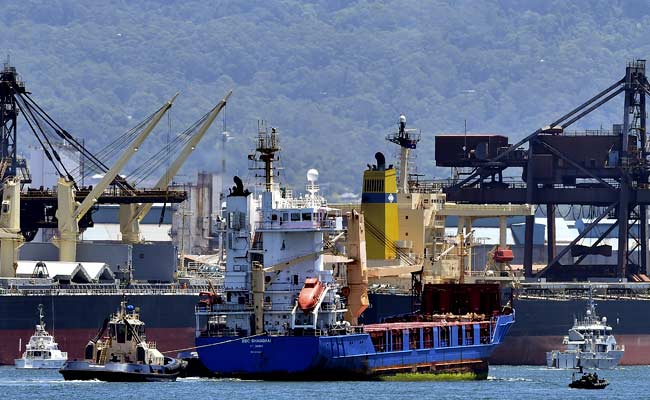A ship carrying 25 tons of radioactive waste arrived back in Australia on Saturday, met by activists who warned against the vast nation becoming a nuclear dumping ground.
 A ship carrying 25 tons of radioactive waste arrived back in Australia on Saturday, met by activists who warned against the vast nation becoming a nuclear dumping ground.
A ship carrying 25 tons of radioactive waste arrived back in Australia on Saturday, met by activists who warned against the vast nation becoming a nuclear dumping ground.
About a dozen Greenpeace protesters, some carrying signs such as "Don't waste Australia", stood near the entrance to Port Kembla south of Sydney as the BBC Shanghai arrived.
Environmentalists have raised concerns about the safety of the ship, which left the northern French port of Cherbourg in October, with one French lawmaker describing it was a "dustbin ship".
"This is not the kind of ship you would want to see transporting nuclear waste," Greenpeace campaigner Emma Gibson, who was on board a boat following the BBC Shanghai on Saturday, told AFP.
Australia sent spent nuclear fuel to France for reprocessing in the 1990s and early 2000s over four shipments, and it has now been returned for long-term storage.
Reprocessing involves the removal of uranium and plutonium, stabilizing the remaining substances in glass, and placing it all in a container suitable for transport and storage.
The waste will initially be housed at the Lucas Heights reactor in southern Sydney until a nuclear waste dump site is selected and built. It is expected to be trucked there from Port Kembla overnight.
The government has said the nuclear waste dump site would only be used to store Australia's radioactive waste but Greenpeace has warned that creating a new waste facility is an invitation to other countries to use Australia as a dumping ground.
The group said a poll of 3,144 people last month that it had commissioned from ReachTEL suggested that most Australians opposed plans to store nuclear waste for other countries.
Asked about Australia accepting nuclear waste from overseas, 18.3 percent supported it, 72.1 percent opposed it and 9.6 percent were undecided.
"Most Australians rightly don't want their country to become a nuclear waste dump for the rest of the world," Gibson said in a statement.
"Nobody has yet worked out a safe way to manage long-term nuclear waste, which can remain dangerous for hundreds of thousands of years."
Six sites, all hundreds of kilometres from major cities and including some Outback locations, have been shortlisted for Australia's first nuclear waste dump.
All the land owners are willing to house low to intermediate waste -- mostly by-products of nuclear medicine -- which is currently stored at about 100 different sites around the country.